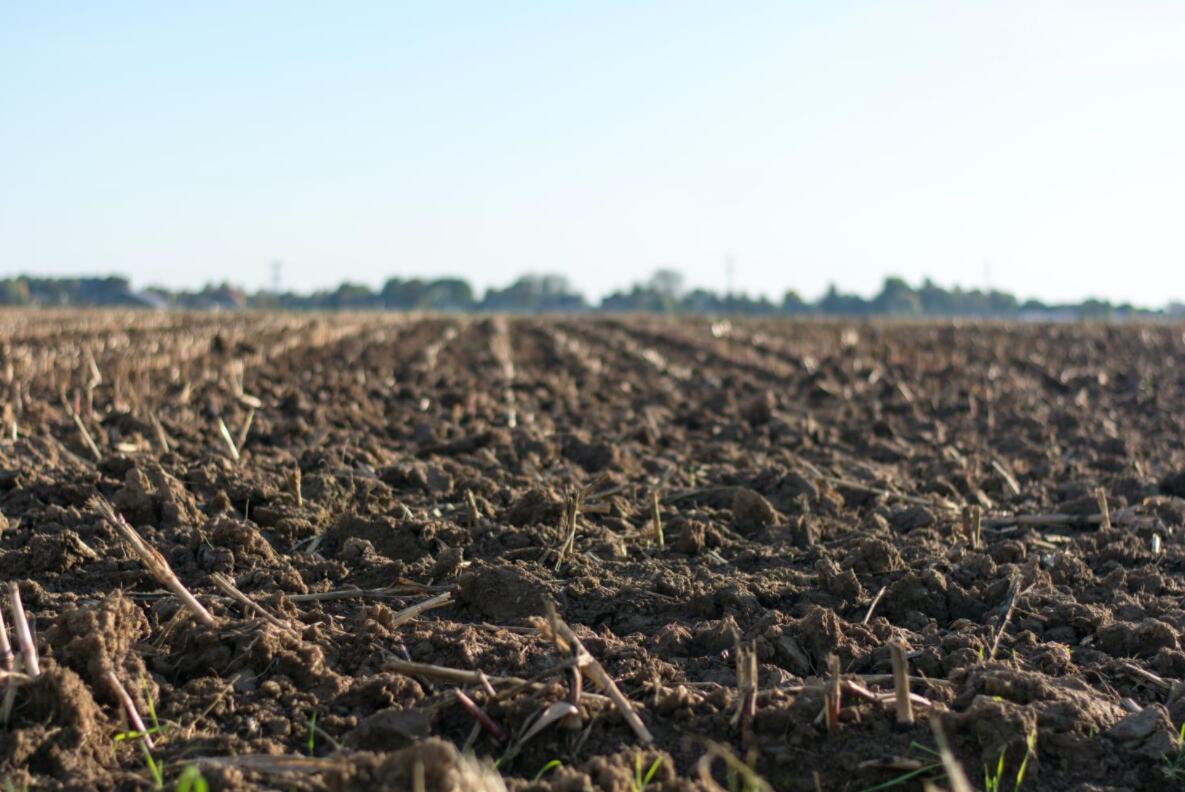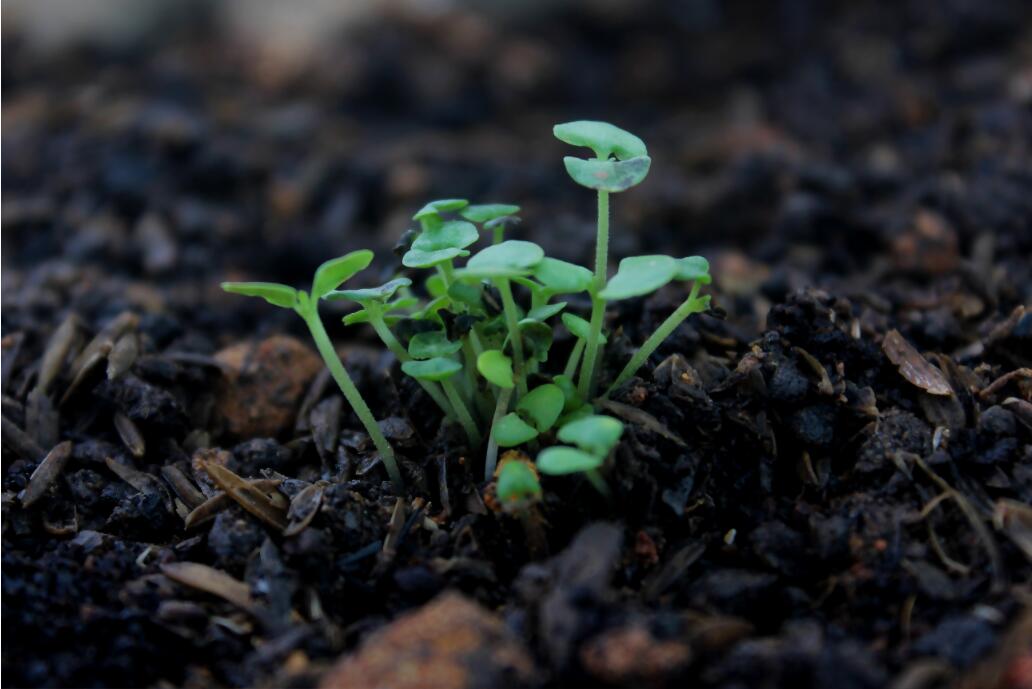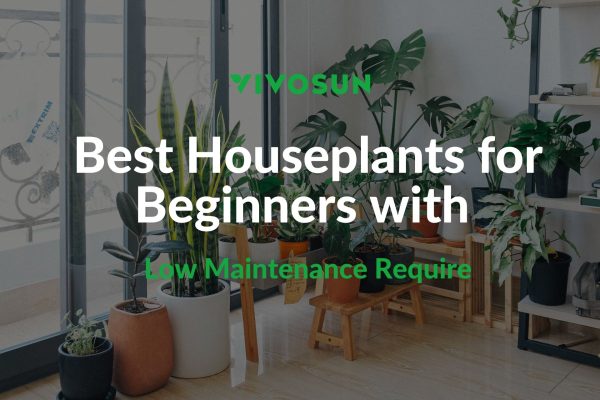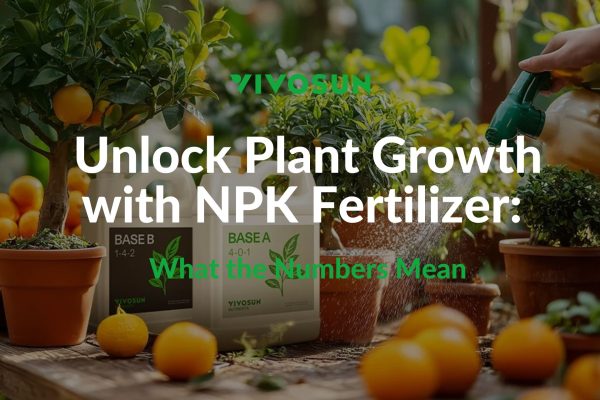Every grower on the planet hopes to have a garden full of well-grown plants and soil health is one key factor because it contains all the nutrients and healthy biological substances that plants use to create new structures. Healthy soil means your plants will be strong and resilient, it will deter pests and diseases and ultimately will lead to better growing. Whether you are starting from scratch or you’re already a mature grower, improving\to improve the soil in your garden is a continuous process.
Soil is alive: it is made of many parts, including mineral particles, microorganisms, water, air, and various organic matter. A healthy garden needs to balance all these parts and ensure that the soil contains the right amount of nutrients (too much and you risk killing your plant).
The Basics to Healthy Garden Soil
Healthy productive plants start with healthy garden soil, soil is where plants draw nutrients so it must be fertile enough to support plant life. The soil must also be loose enough to allow for root growth, drainage, and air circulation.
Healthy soil will be rich in nutrients, minerals, and organic matter. Organic matter is key since it provides nutrition for the soil, promotes a bio-diverse sub-culture in the soil, benefits plant life, and promotes drainage and aeration for the soil.
Why Is Organic Matter Good for Soil?
Organic matter refers to the compounds created by living organisms: plant debris, shredded leaves, grass clippings, and manure are all examples of organic matter. They improve the structure of the soil, bind pollutants, and help soil buffering. Over time, organic matter is broken down by living organisms like bacteria, fungi, earthworms, and insects, which convert the organic matter into nutrient-rich humus. Organisms also create “pockets” and lighten the soil so air and water circulate better.
Most of the time, the soil is composed of heavy clay, which can be compacted easily meaning air, water, and other nutrients do not circulate. Adding organic matter into clay soil will improve drainage and create better substructures that help plant roots grow more easily. Adding organic matter will also improve aeration and substrate structure, ultimately helping your plants.

7 Ways to Improve Garden Soil
If you put your effort and hard work into your garden, any type of soil can be altered into healthy soil for your plants. It will take time to transform it into something useful but you can do this by adding organic matter in the soil frequently to keep the cycle going. Here are the 7 ways to improve the soil in your garden.
1. Add Compost -Improve the Soil in Your Garden
Compost is a mixture of decomposing plant matter that is used to fertilize and improve the soil in your garden. Compost provides nutritious food for earthworms and other microbial life. Earthworms will tunnel through the compost and soil, creating pockets of space for roots to grow while at the same time leaving feces behind, which are packed with nutrients and are exactly what plants need. You can use a composter to create compost or build a compost pile in your backyard.
2. Get a Soil Tester -Improve the Soil in Your Garden
You can add compost to the soil regularly but sometimes this is not enough: be sure to run a soil test every few years (or, if growing indoors, after each watering)—the soil composition may change, so make sure that you keep up soil health by adding nutrients as necessary. Soil testers are easy to get online: a basic soil test will let you know the level of organic matter, pH levels, total dissolved solids (TDS), and even moisture levels (depending on the kind of tester you get). These will help you maintain healthy nutrient levels.
3. Mulch the Soil Surface -Improve the Soil in Your Garden
It is necessary to use mulch for a healthy garden. Mulch activates the natural growing conditions, keeps the soil moist, and prevents the growth of weeds. Mulch will, over time, be absorbed into the substrate and will feed microorganisms.
4. Prevent the Soil from Compacting -Improve the Soil in Your Garden
If the soil in your garden becomes compacted water and nutrients will not be able to enter into the substrate and the lower layers of soil will become hard and dry. Of course, this is bad for plants—dry soil will dehydrate the plants and will reduce nutrients. During winter, cold weather and ice freeze clay and cause it to harden, making it much more difficult for plants to pull up nutrients, but even repeated walking across an area causes compaction—think about a hiking trail and how plants don’t grow on it. Be sure to divide your garden into walking and working areas and areas for your plants that can go undisturbed.
5. Rotate Crops Each Year -Improve the Soil in Your Garden
Planting crops in a different part of the garden every year will prevent the overconsumption of particular nutrients—certain plants prefer certain nutrients so if they continue to grow in one area you can expect a nutrient deficiency in that part. Rotating crops allows nutrients to refresh (this is done in a few ways, first, by letting your soil rest and naturally gather nutrients from rain runoff, and adding different plants allows new plant matter to fall into the soil). Follow a three-year rule: rotate the location of crops each year, the same vegetable should not be planted in the same place for three years. This will both starve any pathogens as well as allow nutrients to replenish.
6. Grow Cover Crops -Improve the Soil in Your Garden
Growing cover crops can be beneficial to the soil. Some of them can also provide a food source for your own need during winter (depending on where you are, of course): kale, radishes, turnips, and other broad-leaf greens can grow well in some climates during winter. In between harvests, you can also plant small beds of clover, which naturally kills fungus and other invasive pests. In spring, turn over the remaining winter crop and turn it into mulch and compost—this will increase the fertility of your garden.
7. Add Aged Animal Manure -Improve the Soil in Your Garden
Adding aged animal manure, too, can be helpful for the soil in your garden. Fresh animal manure can burn your plants (basically, it is like getting nutrients directly on the leaves; diluted manure is better for your plants, which happens naturally when it is mixed into the soil), so before you add it to your garden make sure to let the manure age for several months, up to a year. Additionally, if you purchased animal manure from a farm you have to make sure the animals did not eat hay with herbicides otherwise, the manure can be dangerous to your plants.

Sum up – how to improve the soil
Improving and building healthy garden soil is an ongoing process that will reward you with vigorous, thriving plants that will produce abundant harvests. We hope these tips help you think about how to improve the health of your home garden. Do you have any tips about improving soil health? We would love to hear them!
If you have any questions, please don’t hesitate to reach out to us!
And be sure to check out our other blog posts for useful tips on becoming a great grower!
Subscribe to the VIVOSUN newsletter for growing tips, grower stories, and special offers, and get 12% off your first order!
We love the new VIVOSUN Smart Grow System and we are certain that you too will love it once you try it.
And join our Facebook farmer’s community for even more exclusive contests and prizes!
Download VIVOSUN App to get 18% off and explore more information!








